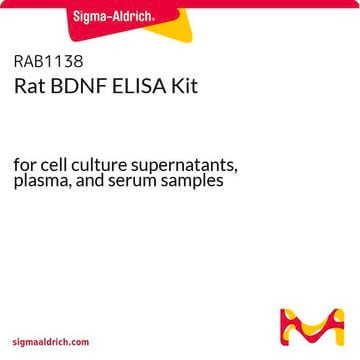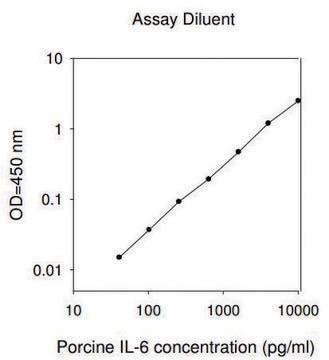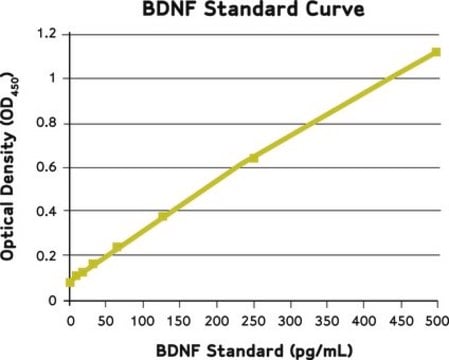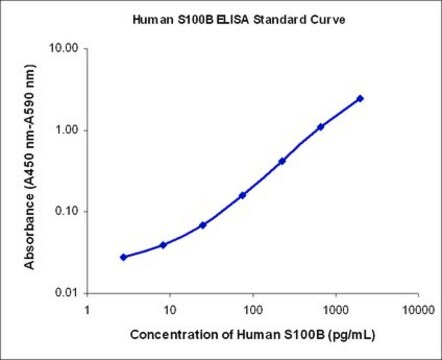RAB0026
Human BDNF ELISA Kit
for serum, plasma, cell culture supernatant and urine
Synonym(s):
BDNF, Brain-derived neurotrophic factor
About This Item
Recommended Products
species reactivity
human
packaging
kit of 96 wells (12 strips x 8 wells)
technique(s)
ELISA: suitable
capture ELISA: suitable
input
sample type plasma
sample type serum
sample type cell culture supernatant(s)
sample type urine
assay range
inter-assay cv: <12%
intra-assay cv: <10%
sensitivity: 80 pg/mL
standard curve range: 0.066-16 ng/mL
detection method
colorimetric
shipped in
wet ice
storage temp.
−20°C
Gene Information
human ... BDNF(627)
General description
Immunogen
Application
Human BDNF ELISA kit has been used to determine the effect of bone marrow mesenchymal stem cell (MSC) transplantation on BDNF protein expression in the striatum of Tourette syndrome (TS) rats. It has also been used to determine the plasma BDNF levels in GD1 (Gaucher′s disease type 1) patients and control population.
- to measure the brain-derived neurotrophic factor (BDNF) protein expression
- to determine BDNF level in the slice culture medium and the extracts of organotypic brain slice cultures (OBSCs)
- to determine BDNF level in plasma
Biochem/physiol Actions
Other Notes
Please type the word sample in the text box provided for lot number.
Kit Components Also Available Separately
Signal Word
Warning
Hazard Statements
Precautionary Statements
Hazard Classifications
Met. Corr. 1
Storage Class Code
8A - Combustible corrosive hazardous materials
Certificates of Analysis (COA)
Search for Certificates of Analysis (COA) by entering the products Lot/Batch Number. Lot and Batch Numbers can be found on a product’s label following the words ‘Lot’ or ‘Batch’.
Already Own This Product?
Find documentation for the products that you have recently purchased in the Document Library.
Customers Also Viewed
Our team of scientists has experience in all areas of research including Life Science, Material Science, Chemical Synthesis, Chromatography, Analytical and many others.
Contact Technical Service














